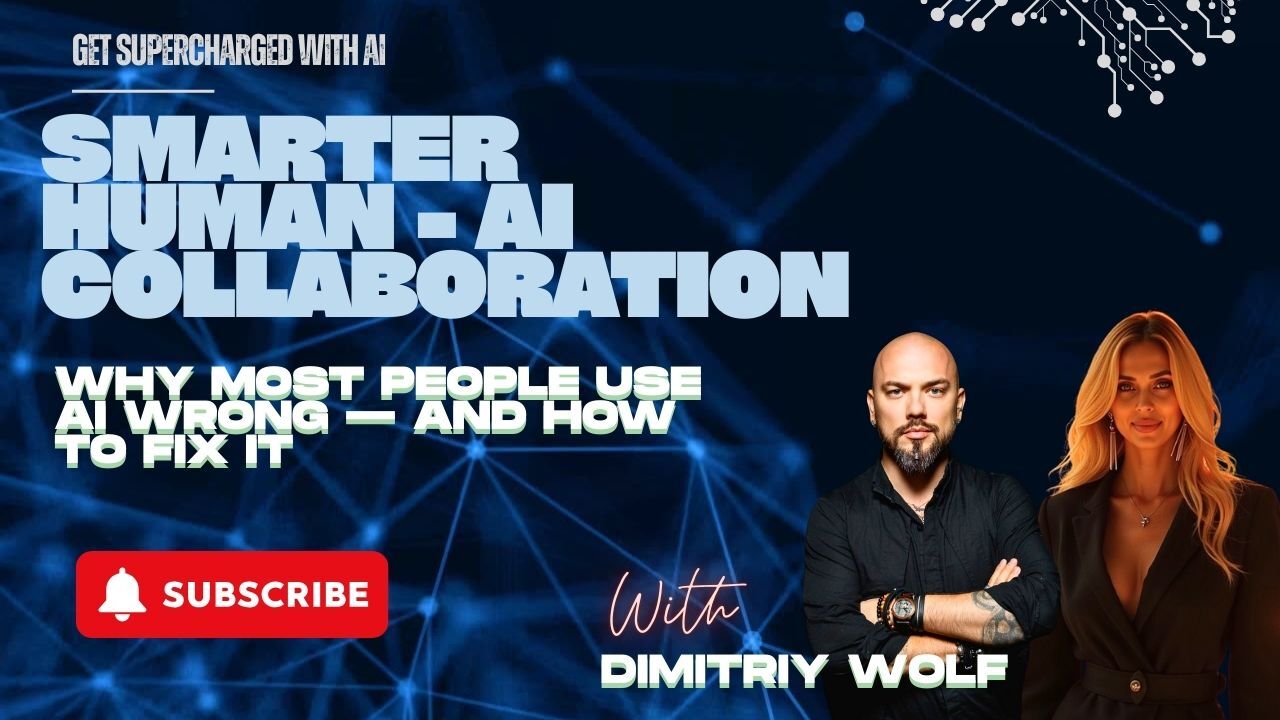Good morning ☀️, leader of the next generation.
Sometimes we give technology too much credit or too much blame.
The truth is, it’s a tool. How we use it is what matters.
Used with purpose, it helps us see more clearly, build faster, and express ourselves in new ways.
It’s not about chasing trends. It’s about creating something real.
WHAT'S AT STAKE TODAY ⚡
- 🤖💬 Microsoft's AI chatbot Copilot leaves WhatsApp on January 15
- 🗣️🔄 ChatGPT's voice mode is no longer a separate interface
- 👶📚 Character AI will offer interactive 'Stories' to kids instead of open-ended chat
- 💰🛒 Onton raises $7.5M to expand its AI-powered shopping site beyond furniture
- 🤝🇫🇷 Dassault Systèmes and Mistral AI Deepen Their Partnership
- 🚦🏙️ New AI model helps cities analyse traffic risks at scale
AI giants enter shopping space, specialized startups remain confident
OpenAI and Perplexity are launching AI shopping assistants, but competing startups aren't sweating it

As the holiday shopping season approaches, tech giants OpenAI and Perplexity have unveiled AI-powered shopping features, integrating these capabilities directly into their popular chatbots to help users research and make purchasing decisions.
The new tools share striking similarities. OpenAI's ChatGPT can now help users find specific items like "a gaming laptop under $1000 with a screen over 15 inches," or analyze photos of expensive items to suggest similar, budget-friendly alternatives. Perplexity leverages its chatbot's memory function to provide personalized shopping recommendations based on users' location, profession, and previously shared preferences.
This move comes as Adobe forecasts a massive 520% growth in AI-assisted online shopping this holiday season. While this surge could benefit specialized AI shopping startups like Phia, Cherry, and Onton (formerly Deft), the entry of major players raises questions about competitive dynamics in this emerging market.
However, niche AI shopping companies aren't backing down. Zach Hudson, CEO of interior design shopping platform Onton, believes specialized startups maintain significant advantages over general-purpose tools. "Any model or knowledge graph is only as good as its data sources," Hudson explains. He points out that ChatGPT and Perplexity currently rely on existing search indexes like Bing or Google, making them "only as good as the first few results that come back from those indexes."
Julie Bornstein, CEO of fashion platform Daydream and veteran e-commerce executive, echoes this sentiment. She emphasizes that fashion shopping involves unique emotional and nuanced elements that generic AI tools struggle to capture. "Fashion is uniquely nuanced and emotional — finding a dress you love is not the same as finding a television," Bornstein notes. "That level of understanding comes from domain-specific data and merchandising logic that grasps silhouettes, fabrics, occasions, and how people build outfits over time."
The competitive edge for specialized startups lies in their custom datasets and focused training. Onton, for example, developed proprietary data pipelines to catalog hundreds of thousands of interior design products, enabling more accurate and relevant recommendations than broad-spectrum AI models. Hudson warns that startups relying solely on off-the-shelf language models without specialization will struggle against larger competitors.
Despite these advantages, OpenAI and Perplexity possess significant structural benefits. Their massive existing user bases provide immediate market access, while their scale enables partnerships with major players like Shopify and PayPal. These integrations allow users to complete purchases directly within the chat interface, rather than redirecting to retailer websites like many specialized platforms do.
The shopping push also represents a potential path to profitability for these compute-intensive companies. Following Google and Amazon's playbook, they could generate revenue through retailer advertising within search results. However, this advertising model might ultimately recreate the same search quality issues that currently frustrate online shoppers.
Industry experts believe the future belongs to vertical specialization. Bornstein predicts that "vertical models — whether in fashion, travel, or home goods — will outperform because they're tuned to real consumer decision-making." This suggests that while tech giants may dominate general shopping queries, specialized startups with deep domain expertise will continue thriving in their niches.
The holiday season will serve as an initial test case for these competing approaches, determining whether consumers prefer the convenience of integrated general-purpose tools or the expertise of specialized AI shopping assistants.
The New Framework for Enterprise Voice AI
Enterprise teams are automating more calls than ever — but without a consistent framework, deployments become unpredictable, costly, and slow to scale.
The BELL Framework introduces a structured way to design, test, launch, and improve Voice AI agents with reliability.
Get the guide enterprises are now using to de-risk voice automation and accelerate deployment.
Warner Music settles copyright dispute with AI startup Suno
Warner Music signs deal with AI music startup Suno, settles lawsuit

Warner Music Group reached a settlement with AI music startup Suno, ending their copyright lawsuit while establishing a licensing partnership. The deal will launch advanced AI models next year, with paid downloads replacing free access.
Warner also sold concert platform Songkick to Suno for an undisclosed amount. Artists like Lady Gaga and Coldplay retain control over their likeness in AI-generated content. This follows similar settlements between major labels and AI companies, marking the industry's shift toward embracing AI technology.
🎙️ NEW EPISODE DROP:
The Future of Human + AI Collaboration | What are The Smarter Ways to Use AI

I sat down with Dimitriy Wolf — social engineer, psycholinguist, and advisor to presidents, sheikhs, and TEDx speakers — to break down why most people use AI wrong.
We covered how to think *with* AI (not just prompt it), how to build authentic brand voices, and what yachts have to do with artificial intelligence.
If you're still using ChatGPT like a search bar — you're getting left behind.
⚡ Trends for the Future
Speechify adds voice typing and voice assistant to its Chrome extension

Speechify expands Chrome extension with voice typing and conversational assistant features.
Speechify, traditionally known for converting text to speech for articles, PDFs, and documents, is expanding its Chrome extension with new voice detection capabilities. The company is introducing voice typing and a conversational voice assistant, capitalizing on the recent surge in voice recognition technology improvements over the past year.
The new voice typing feature supports English and includes automatic error correction and filler word removal, similar to other dictation tools. However, initial testing reveals some limitations. While it works well with Gmail and Google Docs, compatibility issues arise on platforms like WordPress. Speechify acknowledges these challenges and plans to gradually optimize the tool for popular websites.
In terms of accuracy, the tool currently shows higher word error rates compared to competitors like Wispr Flow, Willow, and Monologue. The company claims its model improves with usage, suggesting accuracy will increase over time as users engage more with the platform.
The second major addition is a conversational voice assistant that operates in the browser's sidebar. Users can ask questions about webpage content, such as requesting key ideas or simplified explanations of complex topics. This positions Speechify as a voice-first alternative to existing AI assistants.
According to Chief Business Officer Rohan Pavuluri, Speechify differentiates itself from ChatGPT and Gemini by prioritizing voice interaction as the primary interface rather than treating it as an afterthought. The company believes there's significant market demand for voice-first AI experiences.
One current limitation is incompatibility with browsers featuring built-in sidebar assistants like OpenAI's Atlas, Perplexity's Comet, and Dia. However, Speechify remains focused on Chrome's extensive user base.
Looking ahead, Speechify plans to integrate both features across all desktop and mobile applications. The company also envisions developing AI agents capable of autonomous task completion, such as making appointments or handling customer support calls, competing with similar initiatives from Truecaller and Cloacked.

⚡ You’re Smart. Strategic. Intentional. So Let’s Be Real:
Where Are You Holding Back— On Purpose?
Every smart operator has something they’re intentionally avoiding.
Not because they’re lazy — but because it’s risky, unknown, or just... a bit *uncomfortable*.
So what’s that thing for you?
That one decision, move, or experiment you know would push you forward — but you’ve been choosing not to do it.
Tell us — and we’ll share a tactical POV or tool to help you rethink it.
No fluff. Just momentum.
AI represents our greatest opportunity to amplify human creativity and solve challenges that will benefit all of civilization and create unprecedented progress.
Eric Yuan is the founder and CEO of Zoom Video Communications, the platform that became essential for remote work and communication, particularly during the COVID-19 pandemic, connecting billions of people worldwide. His vision of delivering happiness through frictionless video communication has transformed how people work, learn, and stay connected across distances, and he continues to advocate for using AI to enhance collaboration, reduce meeting fatigue, and make virtual interactions more natural and productive.
🎬 How to Use AI Agents to Build High-Converting Video Ads
Build once. Scale everywhere. In just minutes.

What if: Instead of spending weeks scripting, editing, and testing ads… you could build 10 variations of a high-converting video in 15 minutes — with agents handling the voiceover, visuals, call-to-action, and even the hook testing?
That’s exactly what we’ll show you this week — live.
Why This Changes Everything for Founders 🧠
- 🎥 Fast-Track Ad Creation: From idea to launch-ready video in under an hour — no team needed.
- 🔁 Test Like a Pro: Run A/B tests on 10 hooks, CTAs, or visuals — while you sleep.
- 💰 Better ROAS, Less Guessing: Let agents learn what your audience *actually* responds to.
- 📦 Works for Any Product: Digital or physical — agents adapt to your niche & brand voice.
📅 Join the Live Session w code Supercharged
We’ll walk you step-by-step through building your own ad-generating agent — no code needed.
👉 Click here to save your seat for the webinar
You’ll leave with a working prototype, free templates, and 5x more speed in your next ad campaign.
🎁 Bonus for Attendees:
- ✅ AI Agent Template for Ad Generation
- ✅ "Top 10 Hooks That Convert" Prompt Pack
- ✅ Entry to win a Free AI Strategy Audit
Episode 1: AI Education Without Limits
I sat down with Dr. José Fernández from the Miami Dade College AI Center to explore how AI is transforming education.
We discussed how students today can access world-class AI training with almost zero student loan debt — making innovation more accessible than ever.
Episode 2: What if your story were your sales strategy?
I sat down with Maury Rogow, a Hollywood producer and branding mastermind behind $2.5B in brand growth.
We talked about why the brands that feel effortless aren’t the loudest — they’re just the most aligned.
🌡️ Use the Satisfaction Thermometer to show us how much you enjoyed The Supercharged today ;)

The Supercharged is aiming to be the world's #1 AI business magazine and is on a mission to empower 1,000,000 entrepreneurs worldwide by 2025, guiding them through the transition into the AI-driven creative age. We're dedicated to breaking down complex technologies, sharing actionable insights, and fostering a community that thrives on innovation, to become the ultimate resource for businesses navigating the AI revolution.
The Supercharged is the #1 AI Newsletter for Entrepreneurs, with 25,000 + readers working at the world’s leading startups and enterprises. The Supercharged is free for the readers. Main ads are typically sold out 2 weeks in advance. You can book future ad spots here.
I'm sending this email because you registered for one of our workshops or our affiliates brought you. You can unsubscribe at the bottom of each email at any time.


